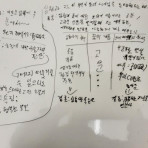Hun Manet dismisses nepotism accusations after brother’s promotion
본문
Thu, 22 Feb 2024 17:37:00 -0500

Prime Minister Hun Manet defended naming his younger brother one of Cambodia’s 11 deputy prime ministers, saying Thursday that Hun Many was chosen because he can execute needed government reforms.
“It just so happens that the minister has the same family name as me,” Hun Manet told the audience at an awards ceremony. “But I would have promoted the head of the Ministry of Civil Service [to deputy prime minister] anyway, even if he were not my relative, because that is the ministry in most need of reform.”
“The purpose [of his appointment] is to carry out reforms in three important areas: public functions, education, and health,” he said.
Critics immediately responded to Hun Many’s promotion Wednesday with accusations of nepotism and corruption.
Legal scholar Vorn Chanlot pointed out that Hun Many’s promotion is not necessary to make reforms as he already has enough power as minister of civil service to improve the efficiency of public services.
“It just creates a delay in the implementation of reform,” he told RFA.
The Hun family has faced accusations of nepotism since Hun Manet was handed the reins of power from his father, Hun Sen, following the 2023 election.
At that time, Hun Sen – who had ruled Cambodia since 1985 – argued that his son’s appointment was based on merit, not nepotism.
Like his son, Hun Sen claimed he would have promoted Hun Manet “even if he were not [his] relative.”
However, experts have characterized Hun Sen’s attempts to stack the government with his relatives as a means of cementing the Hun family as Cambodia’s ruling clan.
Law student Ly Chandaravuth told RFA that Hun Many’s appointment “empowers the backbone of Hun Sen’s family.”
“When Hun Manet is absent, Hun Many can take over state affairs. He becomes acting prime minister,” he said. Under these circumstances, “it is impossible for the government to be effective.”
Translated by Sum Sok Ry. Edited by Claire McCrea and Malcolm Foster.
Prime Minister Hun Manet defended naming his younger brother one of Cambodia’s 11 deputy prime ministers, saying Thursday that Hun Many was chosen because he can execute needed government reforms.
“It just so happens that the minister has the same family name as me,” Hun Manet told the audience at an awards ceremony. “But I would have promoted the head of the Ministry of Civil Service [to deputy prime minister] anyway, even if he were not my relative, because that is the ministry in most need of reform.”
“The purpose [of his appointment] is to carry out reforms in three important areas: public functions, education, and health,” he said.
Critics immediately responded to Hun Many’s promotion Wednesday with accusations of nepotism and corruption.
Legal scholar Vorn Chanlot pointed out that Hun Many’s promotion is not necessary to make reforms as he already has enough power as minister of civil service to improve the efficiency of public services.
“It just creates a delay in the implementation of reform,” he told RFA.
The Hun family has faced accusations of nepotism since Hun Manet was handed the reins of power from his father, Hun Sen, following the 2023 election.
At that time, Hun Sen – who had ruled Cambodia since 1985 – argued that his son’s appointment was based on merit, not nepotism.
Like his son, Hun Sen claimed he would have promoted Hun Manet “even if he were not [his] relative.”
However, experts have characterized Hun Sen’s attempts to stack the government with his relatives as a means of cementing the Hun family as Cambodia’s ruling clan.
Law student Ly Chandaravuth told RFA that Hun Many’s appointment “empowers the backbone of Hun Sen’s family.”
“When Hun Manet is absent, Hun Many can take over state affairs. He becomes acting prime minister,” he said. Under these circumstances, “it is impossible for the government to be effective.”
Translated by Sum Sok Ry. Edited by Claire McCrea and Malcolm Foster.
자유아시아방송 제공 및 저작권 소유 | RFA provided and copyrighted -www.rfa.org

Prime Minister Hun Manet defended naming his younger brother one of Cambodia’s 11 deputy prime ministers, saying Thursday that Hun Many was chosen because he can execute needed government reforms.
“It just so happens that the minister has the same family name as me,” Hun Manet told the audience at an awards ceremony. “But I would have promoted the head of the Ministry of Civil Service [to deputy prime minister] anyway, even if he were not my relative, because that is the ministry in most need of reform.”
“The purpose [of his appointment] is to carry out reforms in three important areas: public functions, education, and health,” he said.
Critics immediately responded to Hun Many’s promotion Wednesday with accusations of nepotism and corruption.
Legal scholar Vorn Chanlot pointed out that Hun Many’s promotion is not necessary to make reforms as he already has enough power as minister of civil service to improve the efficiency of public services.
“It just creates a delay in the implementation of reform,” he told RFA.
The Hun family has faced accusations of nepotism since Hun Manet was handed the reins of power from his father, Hun Sen, following the 2023 election.
At that time, Hun Sen – who had ruled Cambodia since 1985 – argued that his son’s appointment was based on merit, not nepotism.
Like his son, Hun Sen claimed he would have promoted Hun Manet “even if he were not [his] relative.”
However, experts have characterized Hun Sen’s attempts to stack the government with his relatives as a means of cementing the Hun family as Cambodia’s ruling clan.
Law student Ly Chandaravuth told RFA that Hun Many’s appointment “empowers the backbone of Hun Sen’s family.”
“When Hun Manet is absent, Hun Many can take over state affairs. He becomes acting prime minister,” he said. Under these circumstances, “it is impossible for the government to be effective.”
Translated by Sum Sok Ry. Edited by Claire McCrea and Malcolm Foster.
Prime Minister Hun Manet defended naming his younger brother one of Cambodia’s 11 deputy prime ministers, saying Thursday that Hun Many was chosen because he can execute needed government reforms.
“It just so happens that the minister has the same family name as me,” Hun Manet told the audience at an awards ceremony. “But I would have promoted the head of the Ministry of Civil Service [to deputy prime minister] anyway, even if he were not my relative, because that is the ministry in most need of reform.”
“The purpose [of his appointment] is to carry out reforms in three important areas: public functions, education, and health,” he said.
Critics immediately responded to Hun Many’s promotion Wednesday with accusations of nepotism and corruption.
Legal scholar Vorn Chanlot pointed out that Hun Many’s promotion is not necessary to make reforms as he already has enough power as minister of civil service to improve the efficiency of public services.
“It just creates a delay in the implementation of reform,” he told RFA.
The Hun family has faced accusations of nepotism since Hun Manet was handed the reins of power from his father, Hun Sen, following the 2023 election.
At that time, Hun Sen – who had ruled Cambodia since 1985 – argued that his son’s appointment was based on merit, not nepotism.
Like his son, Hun Sen claimed he would have promoted Hun Manet “even if he were not [his] relative.”
However, experts have characterized Hun Sen’s attempts to stack the government with his relatives as a means of cementing the Hun family as Cambodia’s ruling clan.
Law student Ly Chandaravuth told RFA that Hun Many’s appointment “empowers the backbone of Hun Sen’s family.”
“When Hun Manet is absent, Hun Many can take over state affairs. He becomes acting prime minister,” he said. Under these circumstances, “it is impossible for the government to be effective.”
Translated by Sum Sok Ry. Edited by Claire McCrea and Malcolm Foster.
좋아요1
이 글을 좋아요하셨습니다
관련링크
등록된 댓글이 없습니다.





































